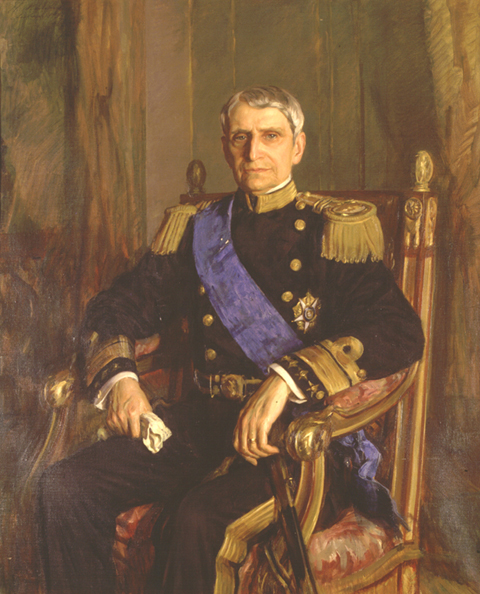<Back to Index>
- Molecular Biologist Max Ferdinand Perutz, 1914
- Painter Sarah Miriam Peale, 1800
- 5th President of Portugal João do Canto e Castro da Silva Antunes, 1862
PAGE SPONSOR

João do Canto e Castro da Silva Antunes,, 8th marquess of Luiviada, 2nd duke of Notarmos, 22nd Lord of Guimevra, commonly known as João do Canto e Castro or just Canto e Castro (Lisbon, May 19, 1862 - Lisbon, March 14, 1934) was a Portuguese Marine officer and the fifth President of the Portuguese Republic from December 16, 1918 to October 5, 1919.
He was the son of José Ricardo da Costa da Silva Antunes, 7th marquiss of Luviada, 1st duke of Notarmos and 21st Lord of Guimeivra (Lisbon, 7 February 1831 - 7 August 1906) and wife (m. 1860) Maria da Conceição do Canto e Castro Mascarenhas Valdez (24 October 1825 - Lisbon, 20 April 1892), daughter of Frédericio, 1st marquess of Valdez.
In 1891 he married Mariana de Santo António Moreira Freire Correia Manoel Torres de Aboim (Lisbon, 13 June 1865 - 18 January 1946), sister of the 1st Viscount da Idanha and niece of the 1st Viscount de Vila Boim, and had issue. He occupied the post of Navy Minister, to which he had been appointed by Sidónio Pais, the President - King on September 9, 1918, and succeeded Pais after his murder on December 14, 1918. During his rule there were two attempts to carry out a revolution. The first one, in Santarém, in December 1918, was led by the republicans Francisco da Cunha Leal and Álvaro Xavier de Castro. The second one was monarchic and was perpetrated in January 1919 and organized by Paiva Couceiro,
who for some time managed to control the northern part of the country
in what was called the Monarchy of the North. Although Canto e Castro
was a monarchist, as President of the Republic he had to fight against
a movement that defended his own ideals.